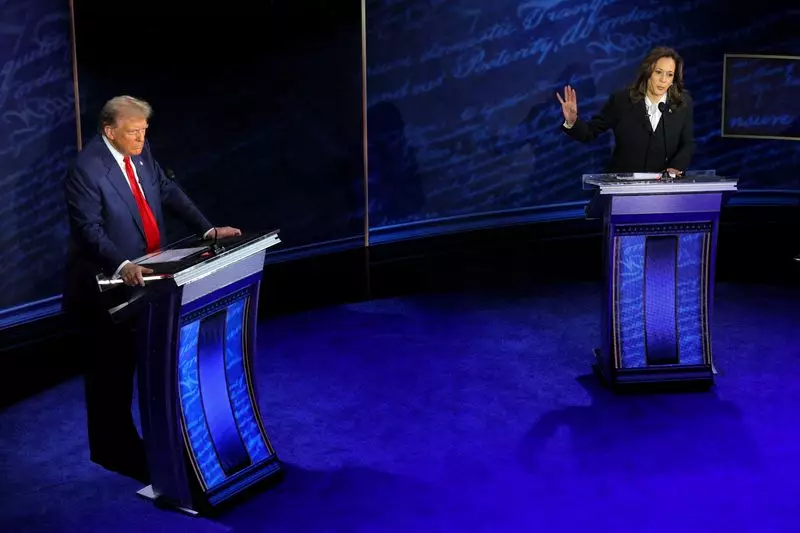In the complex interplay between politics and economics, upcoming elections often create waves of uncertainty within corporate circles. A recent nationwide survey reveals that a significant number of chief financial officers (CFOs) have adjusted their investment strategies as a direct response to the uncertainty surrounding the U.S. presidential election scheduled for November 5. Conducted by the Atlanta and Richmond Federal Reserve Banks alongside Duke University’s Fuqua School of Business, the findings illuminate how political climates can ripple across business decision-making.
The survey provides revealing statistics that emphasize the pervasive impact of political uncertainty. Notably, around 30% of CFOs indicated that they had either scaled back or postponed investment plans due to concerns surrounding the election. Of these respondents, 21% specifically mentioned postponing investments tied directly to the “uncertainty related to the upcoming U.S. Presidential and Congressional elections.” Furthermore, more than 15% opted to scale down their investment ambitions. This highlights a cautious approach taken by firms, particularly when financial leaders perceive impending political events as potential disruptors to economic stability.
Interestingly, the survey highlighted that the firms most sensitive to election-related uncertainties were generally less optimistic about future business prospects. The findings reveal a cautious mindset among these organizations, with a tendency to prioritize cost-reduction strategies over growth investments. Companies leaning toward tightening their financial belts are less inclined to invest in expanding capacity or upgrading existing infrastructure. Instead, they are more focused on short-term stability amid a climate riddled with unpredictability, particularly as they grapple with the ongoing implications of a politically charged environment.
Despite the palpable anxiety expressed by a notable fraction of CFOs, the overall results reflect a degree of optimism. Approximately 69% of respondents reported confidence in their respective companies, while 60% maintained a positive outlook on the U.S. economy as a whole. These figures remained consistent with sentiments documented in previous quarters, indicating that while the election may prompt caution in investment strategies, it hasn’t completely tainted the broader confidence in economic recovery and growth prospects.
The survey did not delve into partisan perspectives regarding which political figures might be more beneficial for business. However, it did identify crucial policy areas of concern. A significant percentage of CFOs, around 60%, flagged “regulatory policy” as the primary worry in the context of the upcoming elections. Close behind, 59% cited “monetary policy,” while 54% highlighted “corporate tax policy.” These findings indicate a pronounced focus on how future policies could shape the operating environment for businesses and their investment decisions.
The Evolving Economic Landscape: A Look Ahead
As the Federal Reserve recently began reducing interest rates in response to shifting economic conditions, the debate surrounding monetary policy is likely to grow increasingly heated among business leaders. The survey reveals that for over a year, monetary policy has emerged as the greatest concern for CFOs—tied closely to efforts to manage persistent inflationary pressures. As inflation concerns have receded, it remains to be seen how the evolving economic landscape will influence corporate strategies and investment behaviors post-election.
The crossroads of politics and economics is a treacherous path requiring careful navigation by corporate leaders. The findings of this survey underscore the powerful role that political uncertainty plays in shaping business decisions. While a majority of CFOs maintain optimism about their companies and the overall economy, apprehension about potential policy shifts looms large. As the U.S. approaches a pivotal election, businesses are likely to maintain a cautious stance—balancing the need for growth with the imperative of stability in a complex and evolving political landscape. The coming months will be critical as companies reassess their investment priorities in response to the election outcome and the subsequent policy direction set by the administration.


Leave a Reply